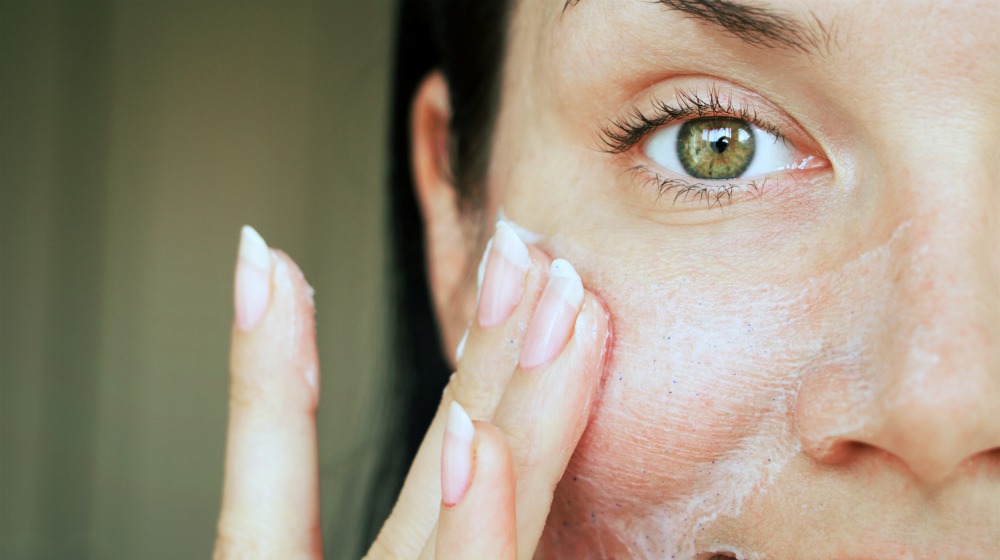The buzz around peptides for skin care is fairly new in the cosmetic industry, but this specific ingredient is slowly becoming a major player in the market. Read on to know more about them.
RELATED: Peptides For Fat Loss And Muscle Building
In this article:
- What Are Peptides?
- How Do Peptides for Skin Work?
- Types of Peptides for Skin
- Benefits of Peptides for Skin Care
- Best Peptides for Skin Care
The Benefits of Peptides for Your Skin
What Are Peptides?
Peptides are composed of chains of amino acids that serve as building blocks of protein in the skin. The short strings of amino acids found in peptides make it easier to penetrate the layers of the skin in delivering anti-aging benefits to the body.
Our cells naturally contain peptides for skin, which help in boosting the production of proteins.
How Do Peptides for Skin Work?
Since peptides are smaller than proteins, they can be easily absorbed by the skin. Their entrance serves as a signal that triggers the body to produce more proteins such as collagen, elastin, and hyaluronic acid for the skin.
Collagen is a protein that acts as a glue in holding the skin, teeth, bones, and connective tissues together. It is famous for its wonders in anti-aging, such as preventing sagging skin and reducing fine lines by maintaining the skin’s firmness and strength.
Best paired with collagen, elastin is the driving force for the skin’s elasticity and bounce. This protein encourages the skin to stretch out and contract; it also gives the skin the ability to return and snap back to its original shape and position.
Meanwhile, hyaluronic acid is a substance that binds to water to boost the skin’s moisture retention. It’s mostly found in skin care products such as serums and creams, it helps keep the skin supple and hydrated.
RELATED: Peptide Synthesis Without Amino Acids Shines Light On Origin Of Life
Types of Peptides for Skin

Natural collagen powder for healthy skin
Carrier Peptides
Carrier peptides play a role in the delivery of trace minerals to the skin, such as magnesium and copper.
Copper peptides are a type of carrier peptides that stimulate the production of glycosaminoglycans such as hyaluronic acid. The use of copper peptides for skin care products can also be complemented by retinol oils and creams.
Signal Peptides
Signal peptides contribute to maintaining healthy skin by working as messengers for the body to boost collagen production. They also encourage the body to release other proteins like elastin.
Copper peptides for skin may also come in the form of signal peptides.
Enzyme Inhibitor Peptides
These peptides slow down the processes that break down collagen, a process that can help reverse the effects of aging.
Neurotransmitter Peptides
Neurotransmitter peptides enable the muscle to repeat movements without the expense of forming new fine lines. They mostly work by blocking the chemicals that contract expression lines, which is helpful in smoothing out fine lines and wrinkles.
Benefits of Peptides for Skin Care
- Stimulates collagen production: Peptides are responsible for communicating with your body to produce more collagen. With increased collagen, the skin remains tight and supple. It also helps maintain an even skin tone.
- Reduces the signs of aging: As we age, the rate of collagen production in our body decreases. Peptides prevent this from happening by sending signals to the body to produce more collagen. This protein helps improve the skin’s elasticity and minimize the appearance of wrinkles and fine lines.
- Strengthens the skin barrier: Through hyaluronic acid, a protein that peptides naturally promote in the body, the skin barrier becomes stronger.
- Improves skin hydration: Peptides help keep the skin plump and hydrated through the continuous synthesis of collagen and elastin.
- Aids in wound healing: Peptides, particularly copper tripeptides, play a part in the regeneration of skin cells. They have anti-inflammatory properties that help heal wounds and reduce scars.
Best Peptides for Skin Care
The best peptides for skin care can be found in products that contain collagen peptides. These peptides enable the body to continuously produce new collagen through fibroblasts, which are the cells that handle the formation of collagen.
Collagen supplements are one of the best options for those who prefer taking collagen orally. They contain hydrolyzed collagen, which is made up of small, broken-down particles of protein.
There are also many topical products infused with collagen peptides that are available in the market. Some come in the form of creams, serums, oils, and sheet masks.
Peptides are naturally present in our bodies. Without peptides, the skin is unable to enjoy the numerous benefits of collagen. Incorporating peptide supplements or products in your lifestyle will help you achieve glowing, healthy skin.
Have you tried peptides for skin care? Share your experience in the comments below!
Up Next:
- Peptide VS Protein: How Do They Differ?
- What Are Collagen Peptides?
- How To Stick To A Diet For Better Weight Loss Resolutions
/
5
(
3
votes
)
The post What Peptides Do For Your Skin? appeared first on Liv Health.


